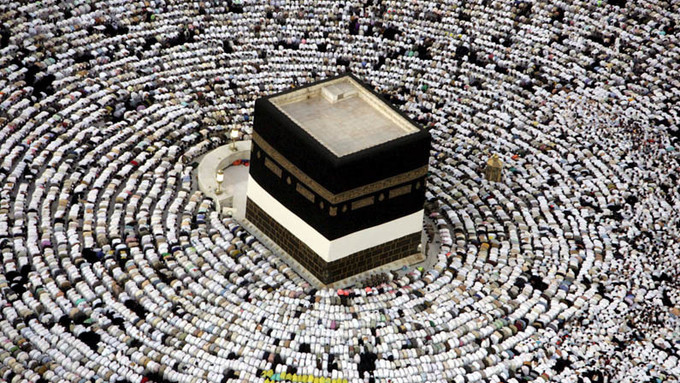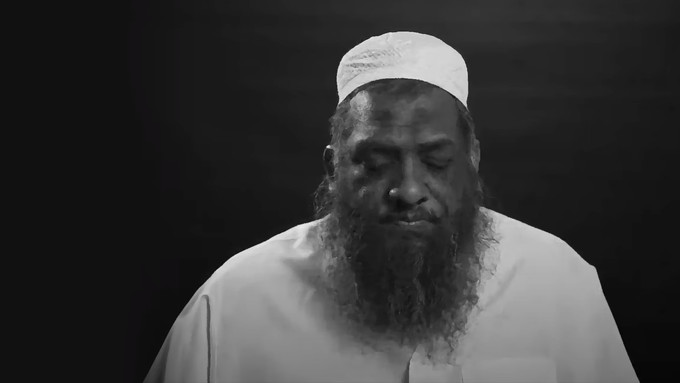Seeking Allah’s Forgiveness

There is a famous story that I learned in my childhood of a man who committed a great sin and then came to an Imam to ask him what to do.
The Imam answered, “Seek God’s forgiveness.” The man went away only to return a short time later to the Imam.
“I have committed a great sin,” said the man, his head lowered in shame.
The Imam answered, “Seek the forgiveness of God.” The man went away and returned a short time later.
“I have committed a great sin,” the man shamefully stated again.
The Imam answered again, “Seek the forgiveness of God.” The man went away and returned a short time later.
“I have committed a great sin,” repeated the individual.
The Imam patiently answered, “Seek the forgiveness of God.”
This time, the sinner decided to reply to the Imam, “Oh Imam – every time I have committed a sin, you have told me to seek God’s forgiveness and I have done just that. However, the instances of sins are recurring and too many. At what point will God stop forgiving me?”
The Imam smiled and said to the man, “When His servant stops asking.”
As a child who constantly struggled with trying to do the right thing after making mistakes, I found this story to be remarkably relatable. As an adult, however, the lessons in this story seem not only self-evident, but also incredibly profound. There are times in our lives in which even the most pious of believers fall into sin – if we are fortunate, that sin fills us with shame and a sense of loss and displacement, both outwardly and inwardly. If we are not so fortunate, that sin may have very little effect on our outward behavior. Yet, even in these cases, however, deep down inside, we feel that sense that “This is wrong. I should not have done that.” As much as we may wish to forget the mistake, or erase it from our lives, the one thing we have to be incredibly cautious of is not to fall into despair.
Despair does not just affect our physical actions; it is a dangerous state of mind that can have many manifestations – from clinical depression to believing “how bad a Muslim I am” to rebellion against God’s laws to even visibly “acting out” against others in creation. The verses cited below from Surah Zumar, however, point us to a different reality. This reality is one in which God – the Ultimate Authority and Judge of our sins – does not see the sinner as a mark on humanity, but rather as a dear servant who simply needs to seek His Forgiveness.
Surah Zumar, Verse 53-54: “O My servants who have wronged themselves! Do not despair of the Mercy of God; verily, Allah forgives all sins. Truly, He is Oft-Forgiving, Most Merciful. And turn in repentance (and in obedience with true faith) to your Lord and submit to Him….”
Allah refers to humanity in a beautiful manner in this verse by calling unto them: “Oh my servants that have wronged their own souls…” In other words, He is not referring to angels, who can do no wrong – rather, the focus of His call are those of us that have sinned. He is reminding us here that no matter how small nor how big the sin is – there is always Hope. Whether individuals have drunk alcohol, had illicit sexual relations, lied, cheated, or neglected their prayers, they are commanded to Hope – and never to despair of Allah’s Mercy. In a famous story, Imam Ali once found someone who was despairing in his life because of the amount of sins he had committed and Imam Ali answered him, “Your despair of God’s Mercy is a greater sin than any which you have committed.” God’s Mercy is boundless – and by restricting it and assuming that we cannot ever attain it due to our sins, we are misunderstanding His Infinite Mercy. In doing so, we think wrongly of our Lord and miss the true meaning of the statement, “My Mercy overcomes My Wrath.”
Perhaps more important than committing the sin itself is what we do after the deed is done. Do we despair of God’s Mercy? Do we wallow in self-pity? Do we go about our day as if we have done nothing wrong? The response that God expects of us is profound – He wishes for us to turn to Him in repentance after the sin: “And turn in repentance (and in obedience with true faith) to your Lord and submit to Him.” Because we have wronged our own souls, we are told to right that wrong by sincerely seeking His Forgiveness. This is the quintessential lesson of life, the foundation of our relationship with our Lord – true and sincere repentance from our sins.
We sometimes delude ourselves into believing that if we were sinless, we would be the ideal Muslim. However, we must recognize that to sin is human. In fact, even the Prophet (peace and blessings of Allah be upon him) testified to this in a Hadith Qudsi when he mentioned, “All of the Children of Adam (humanity) are sinners, but the best of the sinners are those who turn in repentance to God.” As Muslims, we do our best to avoid sins and those things, which God has prohibited in order to draw nearer to Him and increase our reward in the next life. However, as humans, we are prone to sin and sometimes our problem isn’t that we’ve slipped up – but our lack in turning to Him in Repentance after slipping up. It is related to us in the Sunan of Tirmidhi that the Messenger of God said, “If you did not commit sins, Allah would create people who would sin so that He could forgive them.” Allah loves to forgive sins – we simply have to ask for that forgiveness. If we want to be truly human, we have to recognize our reliance upon God and know that no matter what we have done in the past, He is able to Forgive all sins. This is our charter as human beings – to seek His forgiveness and repent to Him.
Whether we display our sins in public or we suffer in silent agony over the wrongs we have committed, one thing is for sure – Allah wants to hear it and to hear us seeking Him as a means to overcome our transgressions. We can no longer afford to push Him aside and make excuses because we are so “terrible” as Muslims or as human beings – He has told us that all we have to do is turn to Him. The question becomes – how many of us will heed His Command and repent for our sins. In doing so, we will not only lift the heavy emotional burden upon us and relieve ourselves of Despair, but will actually draw ourselves closer to our Lord in the process.
The Scholars of Islam have identified a simple 3-step process to making repentance to Allah:
1 – Consciously acknowledge the sin(s) or transgression(s). This may require a certain amount of self-reflection and self-consciousness. All too often, we look for ways to justify our wrong actions. Drawing nearer to God, however, is knowing oneself. The path to Paradise is paved with self-reflection and private piety before God.
2 – Repent to God for the sin(s). Ultimately, there is no special formula for Repentance, other than it being sincere. This can be done through sajdah (prostration), salah (worship) or sincere dua (prayer). The Prophet (peace and blessings of God be upon him) mentioned that the closest he felt to God was in the prostrations of prayer.
3 – Resolve to not commit the sin(s) again. This does not mean that one may not fall into the sin again, just that his or her intention is not to do so again. In Islam, our deeds are judged based on our intentions. We must make the sincere intention to not disobey God again in order to grow on the spiritual path to Him.
Note: Many scholars add a fourth step in the case of someone who has wronged another person: to go and ask for forgiveness from that individual. However, this is often left to one’s discretion, based on whether revealing the sin to the individual would cause more harm or strain in that relationship.
Thus, even in seeking forgiveness and repentance, God has made the process as easy as possible for us. God comforts us in the Quran, telling us not to despair of His Mercy. He even tells us what to do when we feel that we have slipped into error. As believers – indeed as humans – we are only tasked with answering the call He has made multiple times throughout the Quran: to sincerely turn to Him in Repentance, no matter how big (or small) our transgressions may be.
Surah Araf, Verse 23: “Our Lord, we have wronged ourselves, and if You forgive us not, nor have mercy upon us, we shall certainly be losers.”
Surah Shura, Verse 25 - 26: “And it is He Who accepts repentance from His servants and pardons the evil deeds and He knows what you do; And He answers those who believe and do good deeds, and gives them more out of His Grace….”
Ya Muqallibal Qulub, Thabbit Qulubuna Ala Deenik –
“Oh Controller of our Hearts, Make our Hearts steadfast upon Your Religion.”
Shad Imam is married with 3 children and lives with his family in Herndon, VA. He obtained his MBA from the University of Maryland in May of 2007 with a concentration in Organizational Management and Strategy. He has studied the Islamic Sciences under Imam Mohamed Magid. Shad is currently a board member of ADAMS and conducts regular lectures in the Northern Virginia Area.
Faith & Spirituality Related Articles

5 Practical Steps To Get You Ready for Ramadan
As Ramadan is less than a month away, we might feel we often haven't done enough to prepare for it. Here are 5 things we can do right now during Shaban to make sure that we get the most out of Ramadan. The Prophet (Peace & Blessings upon Him & His Family) supplicated,” O Allah give us the blessings of Shaban and give us the treasure of Ramadan.”

Hajj at Home: Kindling the Spirit of Arafah
Even if we are not on Hajj this year, our situation is no different. We navigate through the complexities of our daily life, immersed in the never-ending responsibilities of work and family, inundated with the intrusions of technology and social media into every minute of our lives, moving from place to place and idea to idea.
